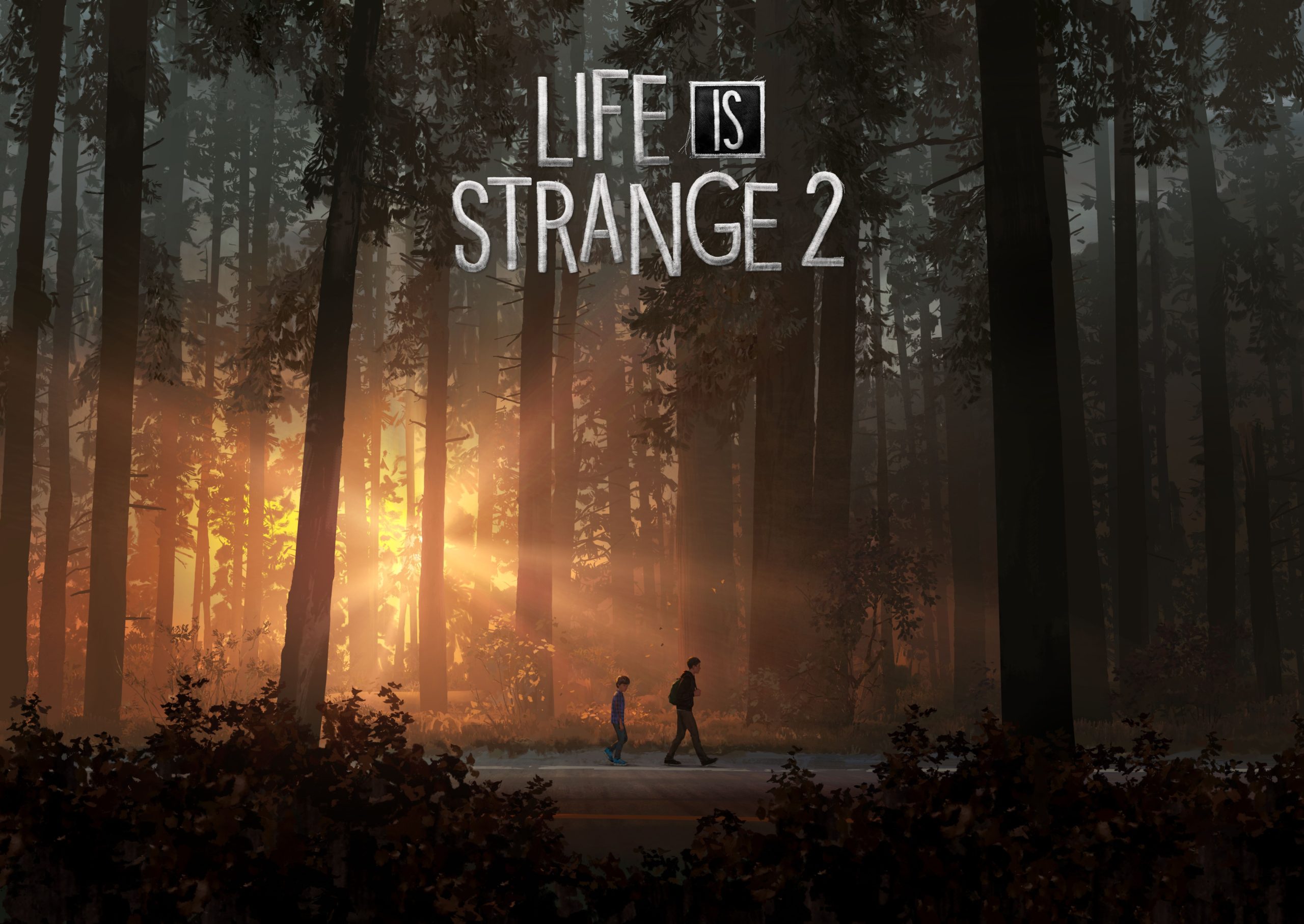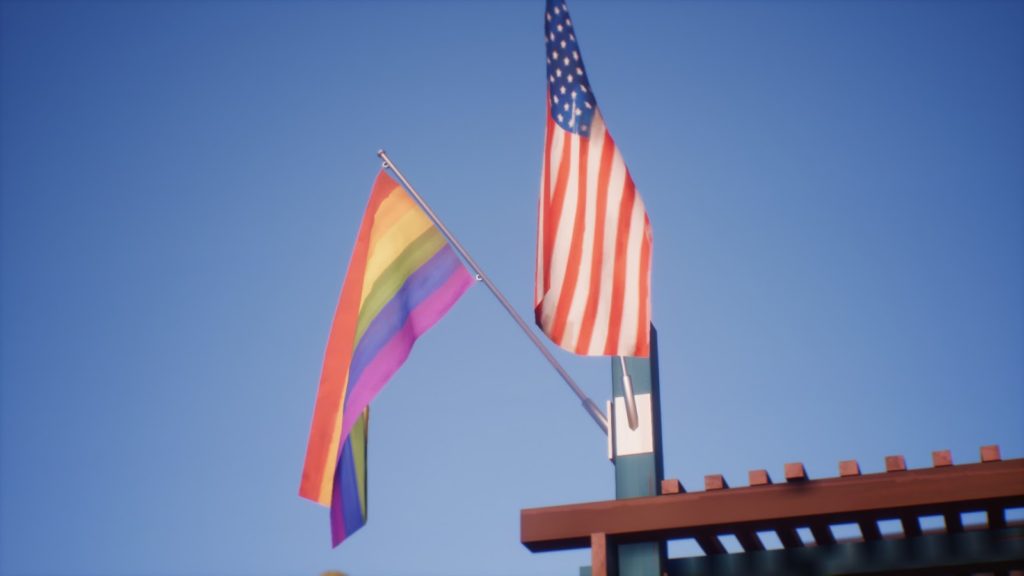
Life is Strange 2: Validating the Pain of Being Human
Children in cages, blankets replaced with aluminum foil. A plethora of Twitter videos of white women using their whiteness to be bigoted toward Latinx people—and their gender to try to escape the consequences. An article on the tragic mass shooting in an El Paso Walmart, executed by a man who drove 10 hours to target and traumatize a specific community. When I look back on 2019, I think of the last 360+ days spent in disgust, sadness, and fear at what the sociopolitical climate for Latinx people has become.
It’s not like bigotry and hatred towards people like me hasn’t always existed, so Life is Strange 2 has always been necessary. But in a year in which simply existing has felt like a kind of activism that I have never wanted to perform, it was genuinely therapeutic to be seen and heard. To exist not just because of my people’s shared pain and trauma—although it’s only proper that those things are acknowledged—but also because Latinx people are ordinary people with important experiences and stories worth being told.
That feels like a sentence I’ve said a hundred times this year, but the fact is, I’m still amazed I can say it. I just turned 23, and since I started playing games at the age of 4, this is the first time I truly feel seen in a story born out of my favorite medium. It makes me yearn for a feeling I’ll never know: the feeling of knowing you will always—or at least often enough—get even mildly satisfactory representation.

Experiencing a story like Life is Strange 2’s feels especially revolutionary when you live in a climate in which your humanity is no longer simply ignored—now, it’s viciously attacked every day. It’s attacked as you hear people debate whether someone like your mother, the person you love most, deserves to live for the crime of wanting a better life; as you listen to people decry your right to exist for having been born to an immigrant parent; as you read the mental gymnastics and justifications for bigotry; as you notice the deafening silence from people who vow to stand by equality and diversity but seem to be exceptionally talented at breaking their vows before beginning to honor them.
It’s not just lachrymose and demoralizing—it’s angering. I’m fucking angry. I’m angry that, on top of everything I deal with on a personal level, I have to put up with this shit because of things my family and I have no control over. I’m angry that billionaires whose favorite hobbies are committing fraud, spitting on the poor, and savoring the emptiness that resides where a human heart should be are fine, while my law-abiding, tax-paying, and whatever-else-that-has-little-actual-god-damn-meaning-in-this-world parents are destined to suffer, barely scrape by, and have their humanity become a favored topic in philosophical debates conducted by those who know nothing about their experiences.

It’s been incredibly helpful that Life is Strange 2 is also angry as hell. Like Parasite, my favorite movie of 2019 and one of my favorite films ever, there’s an intense rage simmering underneath the empathy that ultimately prevails. I say this empathy prevails only in the sense that it rings genuine and true to the experiences of the undervalued. It’s an empathy that shows nobody actually wins in the end because this world isn’t made for people like us to win, and it’d only be irresponsible to whitewash the truth and pretend otherwise. Neither Life is Strange 2 nor Parasite are particularly grandiose stories but both are masterfully told. And maybe the most important stories to tell of the world we live in today are no longer the ones that offer escapism but instead the ones that commit the bold, fantastical, and often unfathomable rebellion of giving a voice to the people whose voices society never gives a shit about.
Maybe empathy exists in its truest form when it’s paired with anger. Because we should be angry that, on Christmas, there were children freezing on floors, trying to survive life-threatening illnesses without their parents by their side to feed them medicine, hug them to provide physical and emotional warmth, and spend the holidays together. We should be angry that we live in a world where billionaires are allowed to be even remotely comfortable with their positions, considering that no one becomes that powerful without having looked at the people behind them and kicked them down the ladder. We should be angry that the United States is so obsessed with perpetuating the idea that it’s the best country in the world when, as of the writing of this piece, there have been 406 mass shootings throughout the 365 days of 2019. We should be angry that, despite the efforts of the few good people in the American government and the everyday people who have been working tirelessly to make a difference, nothing will change.
It’s hard for me to figure out how to end this piece because there is and will be no resolution to all these grievings. I’m tired of pretending like change is coming; like much of anything matters when there are families being mercilessly torn apart and children dying in ICE facilities with nobody in power lifting a finger. I’m tired and upset and angry and in pain.
Much of Life is Strange 2’s beauty lies in its almost supernatural act of validating that pain. It never sacrifices its identity as a choice-driven narrative yet isn’t cowardly enough to insist that it’s not political; that there is something akin to the apolitical; that, in a game where there isn’t a wrong or right choice, one of those choices is deciding whether what is happening to Latinx people, and marginalized people outside of America, is fucked up. That’s just an undeniable fact; the choices lie in what we do with that truth and our empathy.
Ultimately, Life is Strange 2 is empathetic enough to say that you should be tired, upset, and angry, too. And for that, I am incredibly grateful for it this year—and will be for the rest of my tiring, upsetting, painful, beautiful, and strange time in this world.





